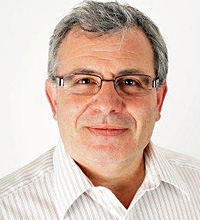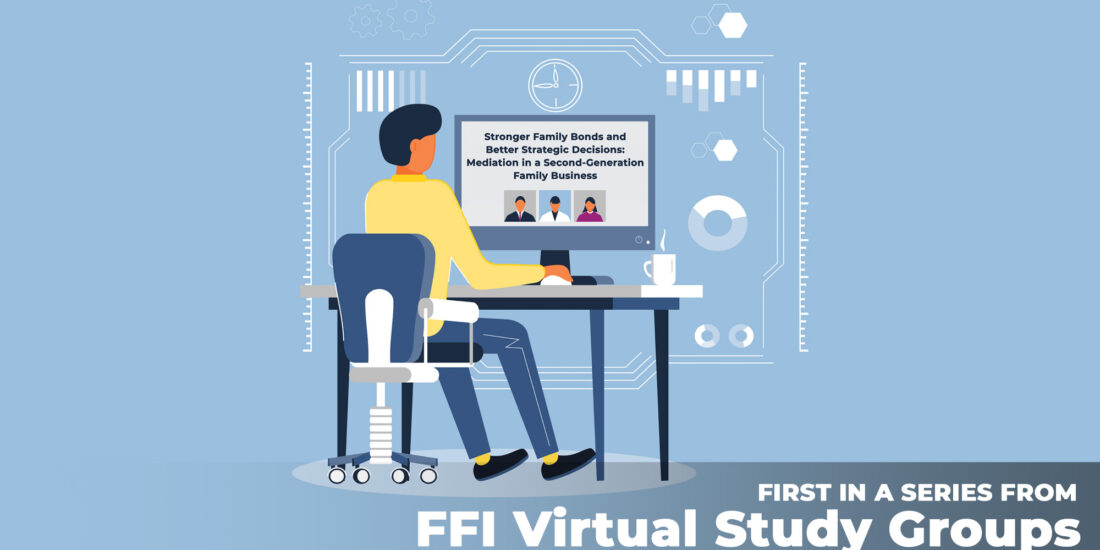Challenging Myths with a Group Reality Experience: Facilitating family enterprise members learning in forum groups
Facilitating more than 120 meetings over seven years with family enterprise members in forum groups has given me a rare and privileged opportunity to see family business myths discussed, challenged, and role-played. The understanding and education of individual members in this setting can be profound. Frequently group members will share their learning experience with others to help widen the reach of family business education outside the forums. Moreover, when these individuals go back to their family and business and see where they may have room for improvement, the new found knowledge can improve the understandings within the family.
Here are two brief cases and some observations on learnings that can result from a group setting.
Case 1: An example of founder and son misunderstandings
As facilitator of a forum group, I use a role-play where a son has difficulty discussing a business growth plan with his father, the business founder. In the facilitation format, 10 individuals trust each other to the point of opening up and sharing their deepest and most strongly held beliefs. There is much discussion within the group to gain understanding of the son’s issue. The facilitator invites the son with the issue to participate in a role-play with a founding father of another family business, not in the same industry, as the basis for discussion.
The son chooses his own way to open the conversation, and the father (acting) takes on the role to answer the question. What follows is a real time education for members of both groups where they are able to grow their skills in emotional communication and discussing facts, figures and plans.
Case 2: Bringing a new group member into the group: Educating the new member to understand the three-circle model as a fundamental tool for discussion
A ninth member comes into the group for her first meeting. She has met some group members at other family business functions and is anticipating an enjoyable and challenging meeting. As all members introduce themselves — their place in their family and their business—the scene is set for her to reveal herself.
Her story clearly identifies that, since her father-in-law passed away, her mother-in-law owns the business and the properties the business operates from. Her husband is managing director of the business and she (the daughter in-law) is in administration. She has a brother-in-law who runs the division on the other side of the country.
Directly following on from the introductions, we discussed the three circle model and its applicability to all families in business. The three circles were drawn on the whiteboard, and the new member watched the group members discuss their own families and where individuals seemed to fit. We then discussed her family and where each family member might fit in the model and some of the potential issues that she might be encountering.
By having group members relate their own stories and where their family members are positioned in the three circles, we are able to softly present all sorts of opportunities for individuals to see what they haven’t been able to see before. This model provides a never before seen perspective on what might be a problem and what might need to change. There is never any definitive answer and members are able to make their own choices. Sometimes discussions continue over weeks and months until a breakthrough occurs.
Some observations on conventional wisdom as it emerges in groups
Conventional wisdom, or oft-repeated statements, reveals the strongly held myths inside a family who works together in a business. Here are three examples that frequently come up in a group setting.
Observation 1: “Dad knows everything.”
Over many years I have found the “Dad knows everything” statement is one of the most strongly held beliefs of children who work with their father in the family business. The family dynamic of Dad being the head of the family carries over into the business where he is the leader. It may start with the younger perspective of ”my Dad’s the best” but changes over the years as the child grows in the business to “now Dad won’t listen to the changes we need to make.” The “myths” about Dad, although possibly true at one point, have now created situations that need to be addressed.
Observation 2: “This is no place for a woman.”
Many women who are members of forum groups feel empowered. However, they admit to sometimes having a difficult time transitioning into the business and gaining respect from staff and family. In these cases, myths or conventional wisdom about gender roles need to be discussed before they become limiting realities.
Observation 3: “I can’t change anything.”
Belief in one’s self generally changes as an individual matures. However, in some families, individuals are so strongly controlled that little personal growth can occur. Having an external support group avails the individual of other perspectives that open windows for opportunities previously not thought possible.
Conclusion
I believe a majority of family businesses work less efficiently when myths are not discussed and addressed. These are the “elephants in the room” that advisors have to deal with when working with families to resolve issues and discuss transition, succession and day-to-day systemic operational problems.
The forum facilitator brings the group together in a non-judgmental, confidential, specially chosen environment. This is a unique and safe place where conversations can occur without raised voices or negativity. Where support and encouragement are assured.
Almost every myth can be overlaid across, and identified in some way with, the three-circle model. A facilitator skilled in the use of this tool is able to help clarify issues for the family to resolve.
The reality is that many of these myths are a one-sided perspective of personal lifetime experience with biased and emotional views. Unraveling these myths in a group situation with a trusted group of peers, and discussing best practice and role-playing exercises, is valuable and a very real long-term opportunity to grow individuals, their family and their businesses.
About the contributor:
 John Broons, CFBA, of Just Call John Pty, Ltd. has worked with business owners in more than 900 one-to-one mentoring sessions over the last five years. He focuses on adding value to CEO’s, their families and their businesses. John is also an accredited Family Business Advisor with Family Business Australia and facilitates two Family Business Australia Forum groups in Perth, Western Australia. John can be reached at john@johnbroons.com.
John Broons, CFBA, of Just Call John Pty, Ltd. has worked with business owners in more than 900 one-to-one mentoring sessions over the last five years. He focuses on adding value to CEO’s, their families and their businesses. John is also an accredited Family Business Advisor with Family Business Australia and facilitates two Family Business Australia Forum groups in Perth, Western Australia. John can be reached at john@johnbroons.com.




